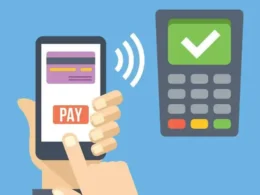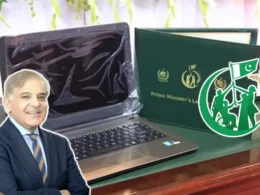Pakistan has officially launched its first government-led Strategic Bitcoin Reserve, marking a major move toward digital innovation and economic transformation.
The announcement came from Bilal Bin Saqib, Chief Executive Officer of the Pakistan Crypto Council (PCC), during his keynote address at Bitcoin Vegas 2025 in Las Vegas, United States.
Saqib, now Special Assistant to the Prime Minister on Crypto and Blockchain with the rank of Minister of State, is currently touring the U.S. to attract crypto investment to Pakistan.
His speech was delivered to a high-profile audience, including U.S. Vice President JD Vance, Eric Trump, and Donald Trump Jr., reflecting growing global interest in Pakistan’s digital roadmap.
“Our country is reborn as a hub of innovation,” said Saqib. “This is a generation that is online, on-chain, and unstoppable,” he added, representing Pakistan’s emerging tech-savvy youth.
He revealed that the national Bitcoin wallet would hold digital assets in government custody – not for speculation, but as part of a sovereign digital reserve to strengthen financial resilience.
“The Pakistan Bitcoin reserve will serve as a long-term sovereign asset,” Saqib added.
Saqib also thanked President of the United States, Donald Trump, for supporting peace during recent tensions between India and Pakistan and for his influence in reviving confidence in global cryptocurrency markets.
He called on global investors to “build in Pakistan” – tokenise land, launch inclusive wallets, and grow their Web3 projects using Pakistan’s youth-powered ecosystem and surplus energy resources.
Earlier to this, Pakistan allocated 2,000 megawatts of surplus electricity to bitcoin mining and data centers in the first phase of its national strategy to support the crypto and AI industries.
Pakistan already hosts more than 40 million crypto wallets and one of the largest freelance economies, giving it a unique advantage in developing a Web3-driven financial landscape.
READ: Field Marshal meets CEO PCC to discuss digital asset growth of Pakistan
Saqib is also leading the formation of the Pakistan Digital Assets Authority (PDAA), a new regulatory body aimed at protecting investors and building a FATF-compliant digital finance system.
He will also oversee licensing of virtual asset providers, integrate blockchain into governance, and ensure sustainable growth for Pakistan’s digital economy.
The government believes this initiative will create high-tech jobs, attract billions in foreign investment, and monetise unused energy resources to support national development.












